US, KSA work to ease conflict
International and regional players have been actively involved with the two nuclear-armed neighbours
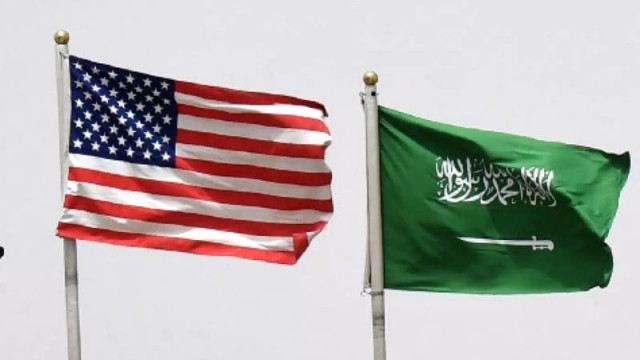
With India sending a barrage of Israeli-made drones in multiple cities of Pakistan on Thursday, international and regional players have been actively involved with the two nuclear-armed neighbours in a bid to seek de-escalation and avoid a potential wider conflict.
Unlike the previous round of military standoffs, the current phase seems to have put the region on an unchartered territory where any miscalculation could lead to a major disaster, people familiar with backchannel diplomacy said.
Sources said the United States and Saudi Arabia emerged as two main interlocutors between Pakistan and India. Those efforts were more visible on Thursday. While Saudi Arabia dispatched its Deputy Foreign Minister Adel Al-Jubeir to New Delhi on an unannounced visit, US Secretary of State Marco Rubio spoke to Saudi Foreign Minister Prince Faisal bin Farhan and later telephoned Prime Minister Shehbaz Sharif.
A State Department readout said Secretary Rubio and the Saudi foreign minister discussed regional security matters, economic engagement, and efforts to de-escalate tensions between India and Pakistan. It would not provide further details.
The United States is working in tandem with Saudi Arabia to prevent further escalation between Pakistan and India. Saudi Arabia has a longstanding relationship with Pakistan and has in recent years developed close ties with India.
Given Saudi Arabia's geostrategic and economic interests, escalation in tensions leading to a wider conflict between India and Pakistan will hurt its interests.
Pakistan, according to the sources, told the Saudi and US interlocutors that Islamabad had never desired escalation in tensions. It squarely blamed New Delhi for the current crisis. It is believed that Pakistan told those international players that the country wanted the international community to condemn Indian missile strikes targeting innocent civilians.
Pakistan also informed them that under the pretext of Pahalgam attack, India was trying to walk away from the Indus Waters Treaty, a water sharing accord that survived wars and other phases of tensions between the two countries.
The sources said Pakistan asked both the United States and Saudi Arabia that India needs to mend its ways and will have to reverse its decision on holding the treaty in abeyance.
Those international diplomatic efforts at least led to the opening of direct channel of communication between Pakistan and India at the level of National Security Advisers. Deputy Prime Minister Ishaq Dar confirmed on Wednesday that Pakistani NSA Lt General Asim Malik, who happens to be the ISI Chief, was in contact with his Indian counterpart Ajit Doval. The Director General Military operations were also in touch through their hotline.
The US and Saudi Arabia persuaded both sides to at least talk to each other even during the times of crisis.
A statement issued by the Prime Minister's Office said the Prime Minister told Secretary Rubio that Pakistan strongly condemns India's missile and drone strikes, which resulted in the deaths of 31 civilians, injuries to 57 others, and damage to civilian infrastructure. India's attacks had violated Pakistan's sovereignty and territorial integrity, while gravely jeopardizing peace and stability in the South Asia region, he added.
The prime minister reaffirmed Pakistan's firm resolve to defend its sovereignty and territorial integrity at all costs. He noted that the people of Pakistan were outraged by India's unprovoked acts of war, and stressed that Pakistan reserved the right to act in self-defense, in accordance with Article-51 of the UN Charter.
The prime minister appreciated President Trump's concern over the current security situation in South Asia.
Secretary Rubio noted that the US was closely following the situation in the South Asia as it was committed to promoting peace and stability in the region. To this end, he emphasized upon the need for both Pakistan and India to work closely to de-escalate the situation.
In Washington, Secretary of State Marco Rubio urged de-escalation and expressed support for direct dialogue in separate calls with Indian External Affairs Minister
Subrahmanyam Jaishankar and Pakistani Prime Minister Shehbaz Sharif on Thursday, US State Department spokesperson Tammy Bruce said.
Rubio, in both phone calls that took place before the latest blasts, "emphasized the need for immediate de-escalation", Bruce said in readouts of the calls.
"He expressed US support for direct dialogue between India and Pakistan and encouraged continued efforts to improve communications," Bruce said.
Showing the delicate balancing act of Rubio's diplomacy, the two State Department spokespersons' readouts, sent out within a minute of each other, also included tailored messages for each side.
To Jaishankar, Rubio reaffirmed his commitment to work with India in the fight against terrorism, Bruce said.
He expressed sorrow to PM Shehbaz for the reported loss of civilian lives in the current conflict between the two neighboring countries, while also urging Pakistan to take steps to end support for terrorist groups, she said.
Separately, Deputy Prime Minister and Foreign Minister Senator Mohammad Ishaq Dar held a telephone call with the European Union High Representative for Foreign Affairs and Security Policy/Vice-President of the Commission (HR/VP), Kaja Kallas at the latter's initiative.
The two leaders had also previously discussed the regional situation on May 2, 2025, a press statement issued by the Foreign Offices Spokesperson said.
During the call, the deputy PM thanked Kallas for the EU's support and solidarity with Pakistan during these difficult times.
He strongly condemned India's blatant act of war, which violated Pakistan's sovereignty and jeopardised regional peace and stability.
Emphasizing that India's actions were in violation of the UN Charter, international law, and the norms governing interstate relations, the DPM/FM rejected India's baseless claims of targeting terrorist infrastructure. He reiterated that there was no credible evidence linking Pakistan to the Pahalgam attack.
He added that Pakistan reserved the right to respond appropriately at a time and place of its choosing, in accordance with Article 51 of the UN Charter and as enshrined in international law.
HR/VP Kallas expressed heartfelt condolences for the loss of civilian lives and extended her sympathies to the families of the victims. She reiterated that both sides must exercise full restraint and pursue dialogue and diplomacy.

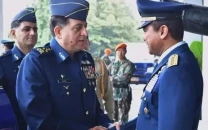
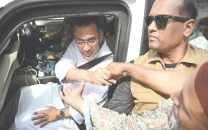


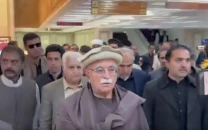



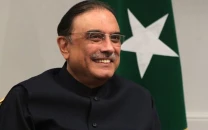
1724319076-0/Untitled-design-(5)1724319076-0-208x130.webp)
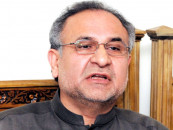












COMMENTS
Comments are moderated and generally will be posted if they are on-topic and not abusive.
For more information, please see our Comments FAQ